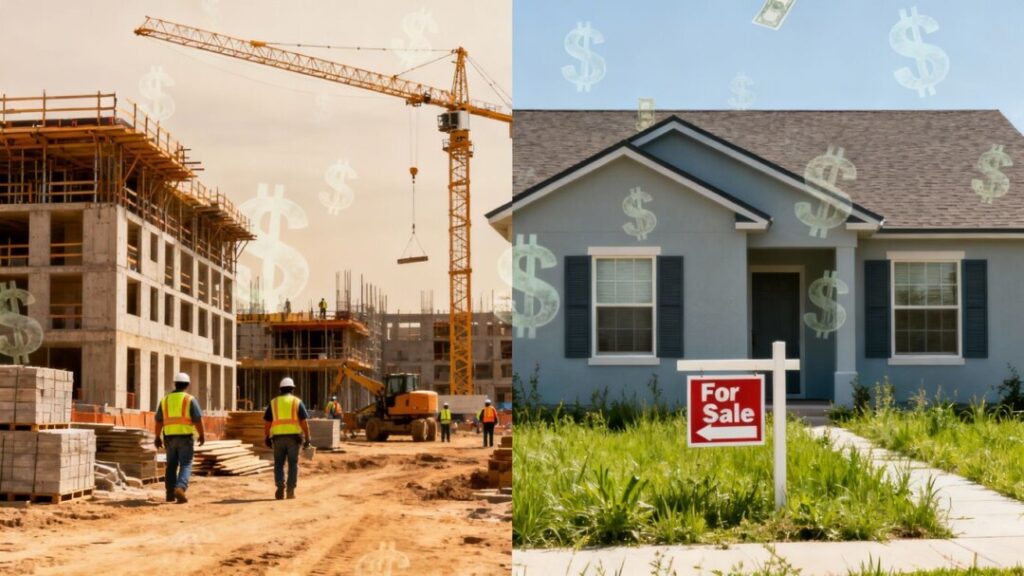Florida’s real estate sector is experiencing a complex and contradictory investment landscape. While the Florida State Board of Administration (SBA) is planning significant commitments to real estate, particularly residential assets, a notable trend of investors pulling back from the state is also evident. This divergence highlights underlying market pressures and strategic shifts within the Sunshine State’s property market.
Key Takeaways
- The Florida SBA plans to commit billions to real estate, with a focus on residential properties.
- Investor purchases in Florida are declining significantly, outpacing national trends.
- Factors contributing to the investor pullback include affordability issues, natural disasters, rising insurance costs, and an uncertain economic outlook.
Florida SBA’s Substantial Real Estate Commitments
The Florida SBA has announced plans to commit approximately $1.4 billion to real estate investments this year, with a strategic emphasis on residential assets. This move comes as residential properties are currently underallocated within the SBA’s real estate portfolio, falling below the NCREIF ODCE Index benchmark. The SBA’s real estate consultant, The Townsend Group, also recommends reducing holdings in office assets, which currently exceed the benchmark allocation. The total value of Florida SBA’s real estate portfolio stands at $18.9 billion, representing 9.3% of its total plan assets, with a target allocation of 12%. The investment strategy includes allocating new capital to the core real estate portfolio through asset purchases and placing capital into funds or unique opportunities for non-core investments, targeting sectors like residential and digital infrastructure.
Investor Retreat from Florida’s Property Market
In stark contrast to the SBA’s planned investments, real estate investors are increasingly withdrawing from Florida. Redfin reports indicate that investor purchases have dropped more rapidly in Florida than in the rest of the U.S. Three of the top five areas experiencing the most significant decline in investor purchases are located in Florida, including Orlando, Miami, and West Palm Beach. Investor purchases in Orlando, for instance, fell by 27.5% year-over-year, the steepest decline among major U.S. metros. This pullback is attributed to a combination of factors, including an uncertain economy, high mortgage rates, a noticeable decline in affordability, and increased concerns about natural disasters.
Mounting Challenges for Florida Real Estate
Several issues are contributing to the cooling investor sentiment in Florida. The state is experiencing a record high in unsold homes, with active listings at unprecedented levels in eight of its metropolitan areas. Coastal regions, in particular, are grappling with surging Homeowners Association (HOA) fees and flood insurance costs, exacerbated by the increasing frequency of natural disasters like hurricanes. New legislation, prompted by the 2021 Surfside building collapse, mandates more stringent structural inspections for older condos and requires additional funds for repairs, leading to higher required payments for owners. Furthermore, the overall outlook for earning profits from real estate investments in Florida is perceived as bleak, with many investors hesitant due to high home-flipping costs, uncertain returns, and the risk of selling at a loss. Nationally, real estate investor purchases have reached their lowest point since 2016, influenced by inflation, job uncertainty, and high mortgage rates, further compounding the challenges faced by the Florida market.
Sources
- Florida SBA commits $1.57bn to real estate in Q2, Private Equity Real Estate | PERE.
- Florida real estate crisis worsens as key group pulls back investment in the state, Daily Mail.
- Florida SBA targets $1.4bn real estate commitments | News, IPE Real Assets.


